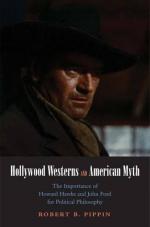|
This section contains 8,697 words (approx. 29 pages at 300 words per page) |

|
SOURCE: Ornstein, Robert. “John Ford.” In The Moral Vision of Jacobean Tragedy, pp. 200-21. Madison: The University of Wisconsin Press, 1960.
In the following essay, Ornstein examines the moral design of Ford's major tragedies, arguing that they represent a flexible morality which is constantly shaped by the dynamic nature of human relationships.
Of the tragedies written between 1622 and the close of the theaters, only Ford's rank beside the masterpieces of the first decade. Blessed with the virtues of a constitutional monarch—sobriety, sincerity, and conventionality—Massinger had to be content in tragedy with unsubstantial regal gestures; he could not command the imagination as did the earlier Jacobeans. Shirley's dramatic authority was even more limited; at his best (in The Cardinal) he proves himself a skillful manager of plot. Because Ford had the courage and the will to break new dramatic ground, he was a less consistent and “correct” playwright...
|
This section contains 8,697 words (approx. 29 pages at 300 words per page) |

|


